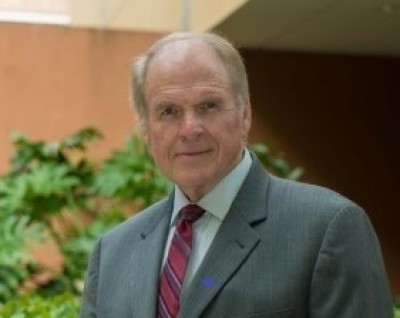God, the nations, and nationalism: When transcendent Kingdom is forgotten (pt 2)
The advance of the Gospel of Christ’s Kingdom in this world is centered on nations.

Christopher Dawson, the 20th century Catholic philosopher, said this: “Behind the weak power and the blind science of man, there is the overruling purpose of God which uses man and his kingdoms and empires for ends of which he knows nothing, and which are often the opposite of those which man desires and seeks to obtain.[1]
God loves nations, as we noted in Part 1 of this series. We also saw that God sees nations in terms of their humanity — ethnologically — rather than their geopolitical position, wealth, resources, governing system, or hegemonic power.
“This Gospel of the Kingdom will be proclaimed in all the world as a witness to all the nations (literally, the “inhabited earth),” said Jesus. (Matthew 24:14). In fact, God Himself has structured the nations to facilitate Gospel penetration.
This is Paul’s point in another passage cited in Part 1, Acts 17:26-27 “He made from one man every nation (Greek, ethnos) ... Having determined their appointed times and the boundaries of their habitation, that they would seek God... though He is not far from each one of us.” (Italics added)
Tragically, the nations in a fallen world are distorted by sin and all its effects. The high mission of being crucibles in which the Gospel of the Kingdom can be poured, then lived out for the benefit of all the people, is lost.
When nations lose their transcendent purpose, they strive to achieve immanent goals, like exploitive power over inhabitants and resources, and the domination of other states,
When the transcendent Kingdom is forgotten, healthy patriotism, which is essential in the shared life of the national community, turns into chauvinism and militarism. Populist power-holders rise up who have either never known the Kingdom purpose of a nation and the high calling that goes with it, of, having known it, reject or ignore it.
Abraham Lincoln could see slavery in the context of the Kingdom. This is not to suggest he could be classed as a theologian. But God will give intuitive understanding to leaders whose hearts are humble, and who seek the deeper meanings and higher aspirations than those visible. So, said Lincoln, of the troubled nation, and himself:
“I am exceedingly anxious that this Union, the Constitution, and the liberties of the people be perpetuated in accordance with the original idea for which that struggle was made, and I shall be most happy indeed if I shall be an humble instrument in the hands of the Almighty, and of this, his almost chosen people, for perpetuating the object of that great struggle.” (emphasis added)
Therefore, the best way to comprehend any nation’s role in and value to history, and whether it was “great,” and “exceptional” is through the eyes of the Lord of history. The Kingdom vision here is the higher purpose through which every society must be understood.
This means that civilizations and nations must be seen in a spiritual sense.
Russell Kirk was an important twentieth-century scholar and philosopher of history who understood the deeper meanings. He concluded that “a civilization cannot long survive the dying of belief in a transcendent order that brought the culture into being.”[2]
Christopher Dawson believed, as did Baron John Dalberg- Acton, that “religion is the key to history. . . We cannot understand the inner form of a society unless we understand its religion.”[3]
Remove the Kingdom vision and all that is left is raw, distorted nationalism, chauvinism, and militarism that strives for the dominance of one nation over another rather than the values of the Kingdom of God.
Forget the Kingdom, and national destiny is reduced to usurpation, exploitation, and force.
Neither Left nor Right in the current national melee can save us from the hatred of America some elements try to promote on the one hand, internally and externally, or blind jingoism on the other.
Our highest passion and quest is spiritual — the advance of the Kingdom of righteousness-justice, peace, and Spirit-given joy in America and all the world’s nations.
[1] Christopher Dawson, The Movement of World Revolution (New York: Sheed and Ward, 1959), 101.
[2] Birzer, Sanctifying the World, 9.
[3] Birzer, 77.
Wallace B. Henley’s fifty-year career has spanned newspaper journalism, government in both White House and Congress, the church, and academia. He is author or co-author of more than 20 books. He is a teaching pastor at Grace Church, the Woodlands, Texas.



























